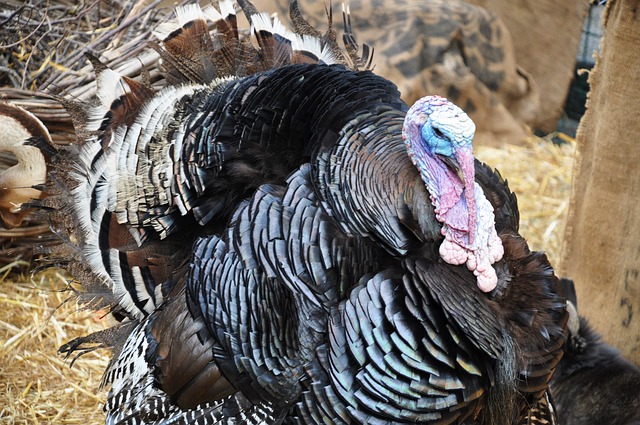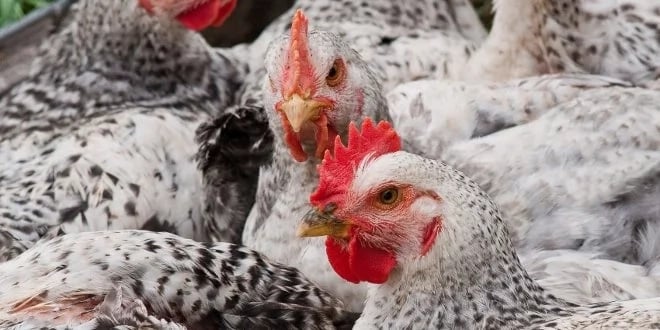Guinea fowl farming in Ghana
Guinea fowl production in Ghana is becoming more popular day after day. Not only does it ensures a stable profit to the farmers working in it but also it is considered as one of the main economy-boosting future businesses in Ghana, as it has the ability to benefit more than 50000 people. The guinea fowl are mainly poultry birds that originated in Africa many years ago, and many farmers are considering investing in them due to their rising popularity and attracting natural traits. They are also sometimes called gleanies, pintades, or just guineas, and they are related to pheasants, partridges, and turkeys. If you want to start a profitable guinea fowl farming business, read down below to know everything about the guinea fowl farming in Ghana.
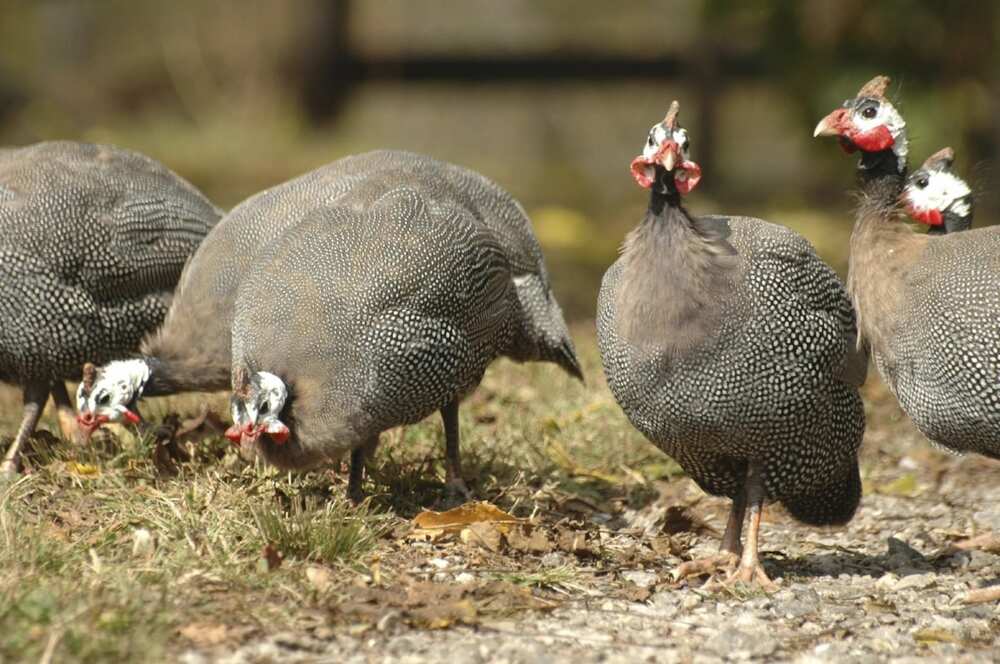
The useful natural traits of guinea fowl
Many people say it is very noisy, but others just love it for that and take its noise as something good because it can be used as an alarm to anything unusual that might take place in their farms. They are also considered among the most useful farm birds due to their many benefits and duties on any farm that are vital, more economic, and time-saving to farmers all alike. For example, it was noticed that their noise keeps away dangerous rodents from getting close to any farm. Guineas also hunt rats and small mice, which prevents all the farm animals from getting any dangerous infections or diseases, and they can be used as the main source of pest control, as they feed on insects such as crickets, flies, and grasshoppers, thus protecting the plants. They are large, tough, and vigorous birds by nature that cannot get infected with any diseases, which is one of the main reasons why they have become very popular among many Ghanaian farmers. Besides all that, they are very entertaining birds, and it is very fun to keep an eye on them from a distance, as they always tease and manage to trick other animals some way or another. Although they originated in Africa, they can still be found in many other countries around the world because of their traits and growing popularity among the people.
Guinea fowl breeds
Guinea fowl used to be wild birds, but people have managed to domesticate some of their species so that they can be used for profit. In general, there are six main breeds of the guinea fowl that can be found in nature. Three of them, which are the Crested Guinea Fowl, the Vulturine Guinea Fowl, and the Helmeted Guinea Fowl, were domesticated and can be found in many farms around the world. The other three species, which are the White-Breast Guinea Fowl, the Plumed Guinea Fowl, and the Black Guinea Fowl are not domesticated and they can be found free in the wild. The most popular and common domesticated species of the guinea fowl is the Helmeted Guinea Fowl, which can now be seen in many of the world’s farms. When it comes to their appearance, there is hardly any difference between the males and the females, and usually, they can only be identified from the pitch of their voices, as the male guineas tend to have a slightly stronger voice. Through experience, some farmers have managed to know the difference between the males and the females from the appearance of the legs, body size, and the feathers. Also, many farmers concluded that the female guinea fowl seems to have a higher body weight than the male. The guinea fowl birds prefer to roam in the fields, as they are not used to captivity by nature. The more space you give them, the better and happier they will be; although it could be hard to catch them in the open, as they are not as tame as chickens and other farm birds. So, it is best to have enough space on your farm for them.
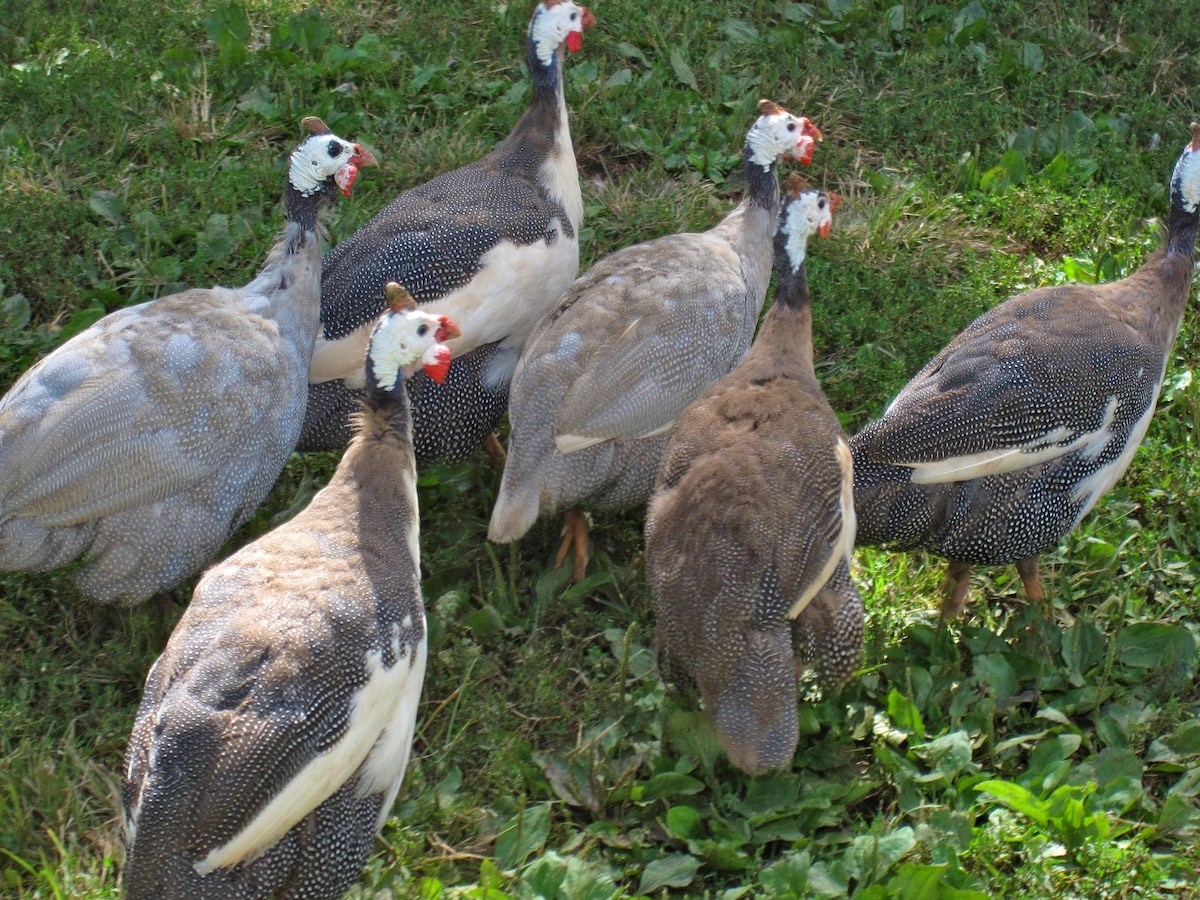
Guinea fowl farming in Ghana
The World Bank’s West Africa Agricultural Productivity Program (WAAPP) has been helping many West African farmers in developing a self-sustaining business in guinea fowl production, and of course, Ghana is one of the top countries on the list because of its suitable weather for the growing of the birds. In addition, many farmers are willing to start working in guinea fowl farming right away under the right and the suitable circumstances. The WAAPP has been working on growing the industry of guinea fowl in Ghana so that it can help solve many of the unemployment issues in the country. This has helped many Ghanaian citizens, including old and young people from 20 to 60 years old, in finding new jobs on which they can depend to get a stable income that covers their daily expenses and opens for them a chance to save more money for suture investments.
Usually, every WAAPP beneficiary received financial support, the necessary vaccines, a generator, an incubator, dewormer, 500 eggs, and food for the birds. As a result, statistics have proven that the WAAPP’s investment in 80 farmers in Ghana has had its benefits over more than 50,000 Ghanaian citizens of different ages, and it is still expected to have an even larger effect on many guinea fowl farmers in Ghana. Many farmers in Ghana not only raise the birds for profit, but for other social and cultural purposes like gift-giving, weddings, funerals, weddings, and most of all the celebration of the guinea fowl festival, which is so popular in Ghana. The guinea fowl meat is also very popular; as a result, in many of the local restaurants in Ghana, local people now tend to choose guinea fowl to other kinds of imported meat, which also helps the country's economy. There is no doubt that its meat is healthier, as it has less amount of fat and more nutrients compared to other kinds of poultry meat making it a locally produced, delicious, and healthy source of protein.
Guinea fowl production in Northern Ghana
The northern region in Ghana is considered the largest among ten other regions, as it covers an area of approximately 70,000 square kilometers or 30% of Ghana’s area. Since it is drier than other regions, it has become most suitable for growing guinea fowl birds, as they are very sensitive to dampness in the first couple of months after hatching. In general, that is the main reason that the production of guinea fowl birds in the northern Ghanaian region is much more compared to other regions making it one of the main regions responsible for guinea fowl commercial farming. So, you should consider yourself blessed if you live in the northern region, as it might be a great chance for your to start your own business right away, employ farmers to assist you, and help the Ghanaian economy. If you live in another region, then it could also be possible to have a sustainable business but only of you guarantee that your two to eight weeks old keets are not going to be affected by any humidity or dampness in the rain season. In general, Ghanaian guinea fowl farmers all over Ghana lack the necessary knowledge when it comes to keet mortality control, but it is never too late to learn how to do it the right way.
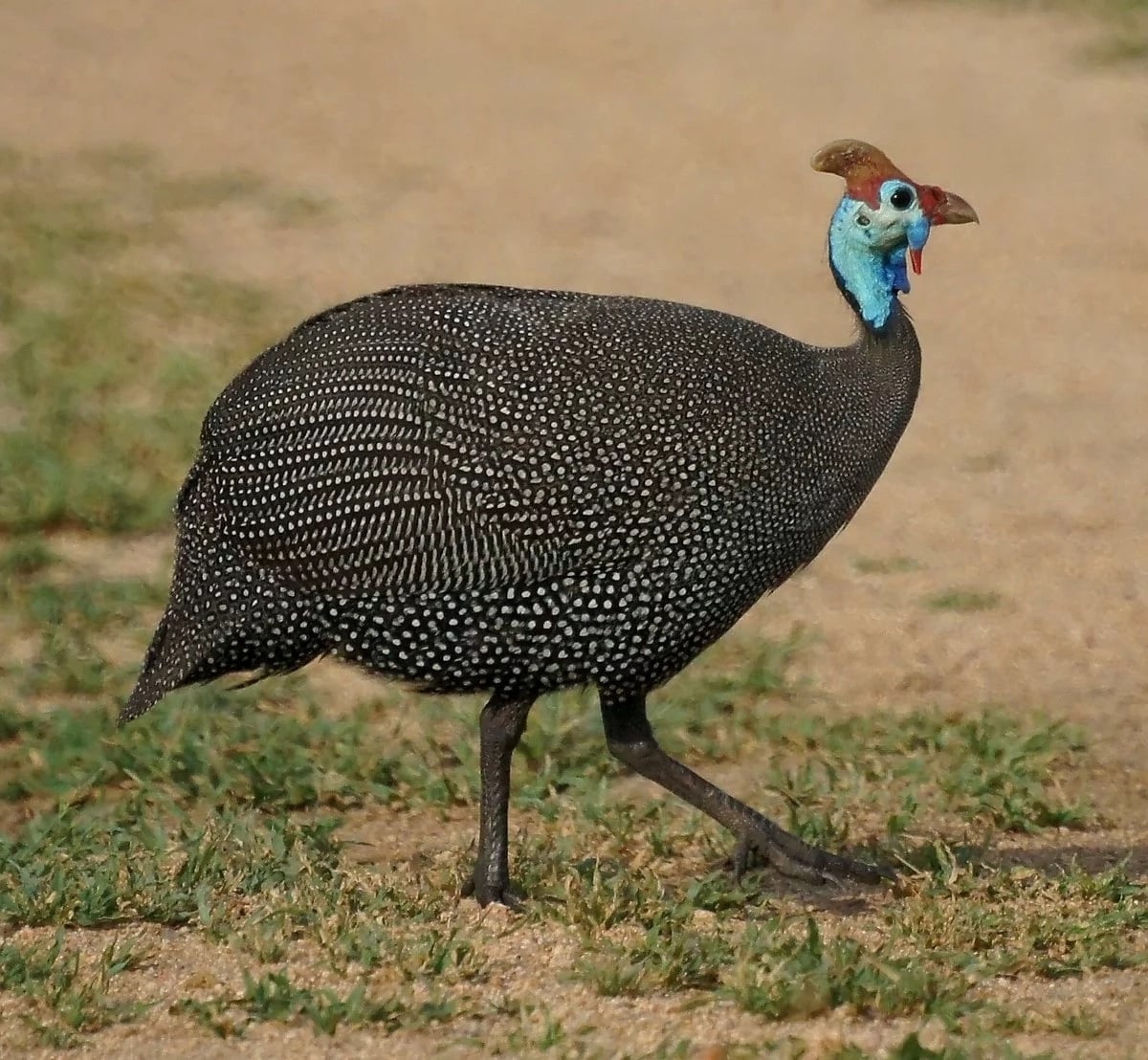
Guinea fowl production
Nowadays, you can easily find guinea fowl meat for sale in many locations in Ghana. Its meat is not only full of nutrients, proteins, and healthy elements but also their bones are much smaller compared to other kinds of poultry birds making them have a better quality price. In addition, guinea fowl meat has a nice flavor as mentioned by many of the people in Ghana, and it is also leaner and drier than the meat of chickens. They can be raised in the backyard of each house, and you are not going to need a especially dedicated farm in order to raise them. The only down part is that their noise may bother your neighbors in case you have any near your house. Actually, raising guinea fowl at your backyard could also be a good hobby for your children, as they are very entertaining birds and they will definitely keep them busy. It would be the perfect way of supplying your family with eggs and nutritious meat, as it has more proteins than the meat of the chickens and turkeys and about half the amount of fats. The guinea fowl eggs are also richer than those of other kinds of birds. If you have any kids, it would be a great idea to encourage them to start their own business by establishing a small guinea fowl farm in your backyard if you have enough space for them, and your children will definitely make good money selling their meat in local markets and their eggs to other farmers. You can find many online guides and tips about how to successful start a small guinea fowl farm at your backyard. In addition, Ghana has a huge advantage when it comes to growing guinea fowl birds because of its nice and suitable dry weather, especially in the north, because it is perfect to grow guinea fowl where there is not much rain or dampness, which makes the weather conditions in most parts of Ghana ideal for the production of guinea fowl birds. Even if you do not live in a dry region, it is only necessary that you take care of the keets and keep them away from dampness and humidity until they are 2 to 3 months old. Encouraging many local people in Ghana to start a business in growing guinea fowl not only helps with many of the poverty and unemployment issue, but it also reduces the need for foreign currencies required to import meat into Ghana from other countries.
Guinea fowl keeping
If you are worried about not being able to treat your guinea fowl birds in case they get certain diseases, then you do not have to worry about that at all. Unlike other poultry birds, chickens, and turkeys, guinea fowls are very resistant to the common virulent and viral diseases such as the Newcastle disease, which usually infects many of the poultry birds in Africa. Guinea fowls are also resistant to fowlpox and gumboro diseases, which were known to have affected many poultry birds before. This makes guinea fowl mating and raising an easy job for many beginners. It is just most important to take care of their keets two to three months after they hatch and keep them away from dampness and humidity, as this is the period in which they are most vulnerable. Many local people in Ghana also know how to treat guinea fowl using local plants and herbs, which is not going to cost you a lot compared to raising other animals, which may need especially expensive imported medications. The WAAPP also distributes many vaccines for free for those who are seriously willing to start a business in growing guinea fowl. Many farmers in Ghana reduced the keet mortality by keeping the keets in a confined location for about one month, and this strategy proved to be very successful.
How to start guinea fowl farming on your own
In any business or work around the world, it is very known that there is nothing better than practical experience, which you may lack at the beginning, especially if you are not very familiar with growing farm animals. So, the best thing to do at this time before you start anything is to collect as much information as you can about growing guinea fowl form local farmers or from people you know who are working in the same field. Writing down all of this information is also very important so that you won’t get confused with the opinions of many people. This will definitely save you a lot of time and effort.
After that, it is best to make your own plan to improve the process of growing the birds so that you can have a successful, unique, and a competitive business compared to others. You should definitely be very careful at the beginning in following the most important steps, and it is better to hire some farmers who are experienced in growing guinea fowl birds, as they will definitely assist you.
Growing guinea fowl birds has been going on in Ghana for so many years, but you need to focus on growing as many birds as possible in the shortest amount of time so that your business would advance and be competitive. It is a good idea to start by reading the stories of successful regional farmers who have managed to increase their production in a short period of time, as this will give you a lot of inspiration about you can do so that you can improve your business plan.
There are many farmers who used to listen to a radio program that is dedicated to providing information to the locals about the right strategies when it comes to growing the birds and marketing their meat and eggs. Some farmers admitted that they have learned about the housing of the birds, the right antibiotics and medications for them, and the necessary growing conditions just from this same program. Many farmers also have a chance to contribute to the daily radio program through phone calls, which makes it a nice and a friendly community in which everyone is seeking to help the others. There are now many farmers in the north of Ghana who only rely on guinea fowl birds to cover their expenses and provide for all their life necessities.
The guinea fowl growing radio program in Ghana
Here is a story to start with that is of a regional Ghanaian farmer who won the best regional farmer award from Ghana’s Ministry of Food and Agriculture after managing to triple his production in 2017 compared to the year before. Mr. Albert Asorigiya, from the rural community of Kasenamun, admitted that the broadcasted radio program, which is called Farm Radio International, gave him all the support he needed to successfully increase his income by helping him come up with the best guinea fowl farming business plan.
Through the program, he learned about housing, antibiotics, marketing skills, and he most importantly learned how to provide his birds with care, food, and water in a professional manner. He also stated that the marketing and business skills that he learned from the program showed him how to gain better access to different markets in which he sold his products. He explained that he learned to manage how to sell his birds the right way at the right time, as he used to send his birds in cages and sell them in other cities when no one came to buy them from this farm, and that at other times, the owners of some restaurants and hotels came to his farm to purchase his birds.
Mr. Asorigiya also shares his knowledge with many other farmers on the phone through the same radio program. So, now is definitely the right time to commit to this radio program every day if you have not started yet. It will definitely provide you with the necessary skills and the perfect inspiration.
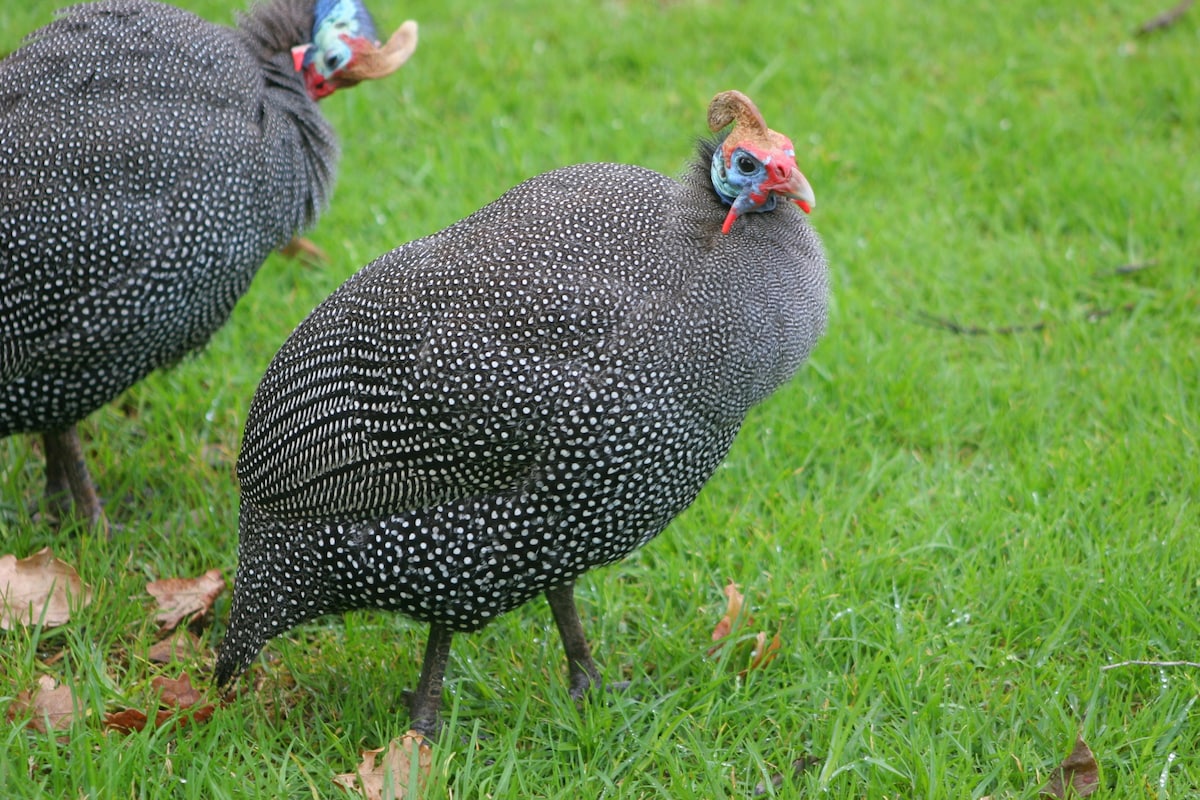
Guinea fowl farming information and tips
It is very important to understand the nature and behavior of guinea fowl birds before starting a business in growing them. You will find below some of the most important tips that are recommended by many guinea fowl farmers and professional growers in order to have a successful business and a worthy production. This could actually be a very good guinea fowl farming guide for beginners.
- If you are unfamiliar with the behavior of guinea fowl birds, then it is important to know that they are not easily tamed like chickens and other farm animals and that they tend to keep some of their wild behaviors at sometimes.
- Guinea fowl birds are very active and can roam around easily without coming back if they get the chance.
- In general, guinea fowls are often left to forage for themselves, but if you want to have a good production, then it is could be necessary to provide for them the suitable sheltering facilities in order to protect them from other predators, the sun, the strong winds, and the cold, especially when they are still young. Free range guinea fowl farming is more comfortable and natural for the birds as long as they have a shelter to protect them in harsh and unsuitable weather conditions.
- In order to have a suitable shelter for them, you would need a regular room in a barn in which there is 2-3 square feet space for each bird. It is very necessary that they have enough space, as they are not used to confinement by nature, and confining them in a small area will get them stressed.
- It is very important to have good flooring facilities at your farm. For example, the floor should be covered with a good absorbent material such as chopped hay, straw, or wood shavings.
- You should provide the shelter of your birds with enough perches, as they always prefer to roost at night.
- If you want to prevent them from wandering or roaming around in nearby places, then it is definitely necessary to keep them in covered pens. It may not seem that they can fly, but they are actually very good flyers starting from a very young age. They are also fast runners, and they usually prefer to move on foot.
- If you have chickens in your farm, then you should be careful not to have chicken roosters and guinea fowl males at the same place, as the guineas will most probably keep chasing the roosters preventing them from eating and drinking, thus stressing them and affecting their growth.
- If you are going to keep some of your guineas for egg production, then it is very important to provide them with nest boxes. They do not require special boxes, as the chicken nest boxes or homemade nest boxes are suitable for them. All you have to do is to keep the guinea hens confined to their shelters until noon every day so that they may have a chance to lay eggs inside, which will decrease the possibility of them laying eggs in hidden nests outside the farm.
The selection process
After setting up a suitable shelter for your future guineas, it is now time to start purchasing the birds for your farm. Make sure to purchase high-quality birds or keets from trusted farmers, local guinea fowl breeders, or feed stores. It could be better to buy keets at the beginning because they will be tamed easily when raising them.
In general, the key to successful growing of guineas is all about choosing the right healthy keets from the beginning. It is also better to purchase the birds in pairs as they are monogamous creatures by nature, and after purchasing them, it is very recommended by many guinea farmers to confine them in their new shelter for about one week or two so that they can get accustomed to their new home. If you let them out right away after purchasing them, they could very easily run away and never come back to the farm.
After a couple of weeks of confining them, let one of the birds out for a short period of time so that it can come back home by itself, as guineas are social creatures and they hate to be alone. That way, each bird will not go far and will learn its way around the area until it eventually comes back by itself. A couple of days after that, repeat the same procedure with another bird, and then repeat it again with the other birds until all of them become accustomed to their new location.
Feeding guinea fowl birds
The birds are not going to cost you a lot when it comes to feeding them as they are used to forage for themselves by nature. They love to roam freely and search for food, and they can meet all their nutrition needs mainly on their own. Guinea fowl birds consume a big variety of herbs, plants,grains, and insects of different kinds. They also feed on arachnids, weed seeds, worms, slugs, and caterpillars. In general, they feed on herbs and greens so that they can maintain a good and an easy digestion, and that is why it could be important to ensure the availability of grit in your farm.
When it comes to the grains, they prefer sorghum, wheat, or millet to corn kernels. Some farmers restrict their feed in order to encourage them to spend more time catching insects. In case you do not have a suitable place where they can roam freely and want to keep them confined in a certain location, then the commercial poultry feed could be a good option for feeding them. Keep in mind also that the keets need extra amounts of protein between 24 and 26 percent, while the protein percentage should be reduced to about 20% for the fifth to eight weeks. After eight weeks, you can feed them 16% layer mash. If you cannot find feeds with the necessary protein amounts, then you can mix a higher protein feed with a lying-hen mash.
Pelleted feed is definitely not recommended for the guineas. Supplement greens like alfalfa are also good for them. Make sure to remove any leftovers every day in order to prevent any mold problems.
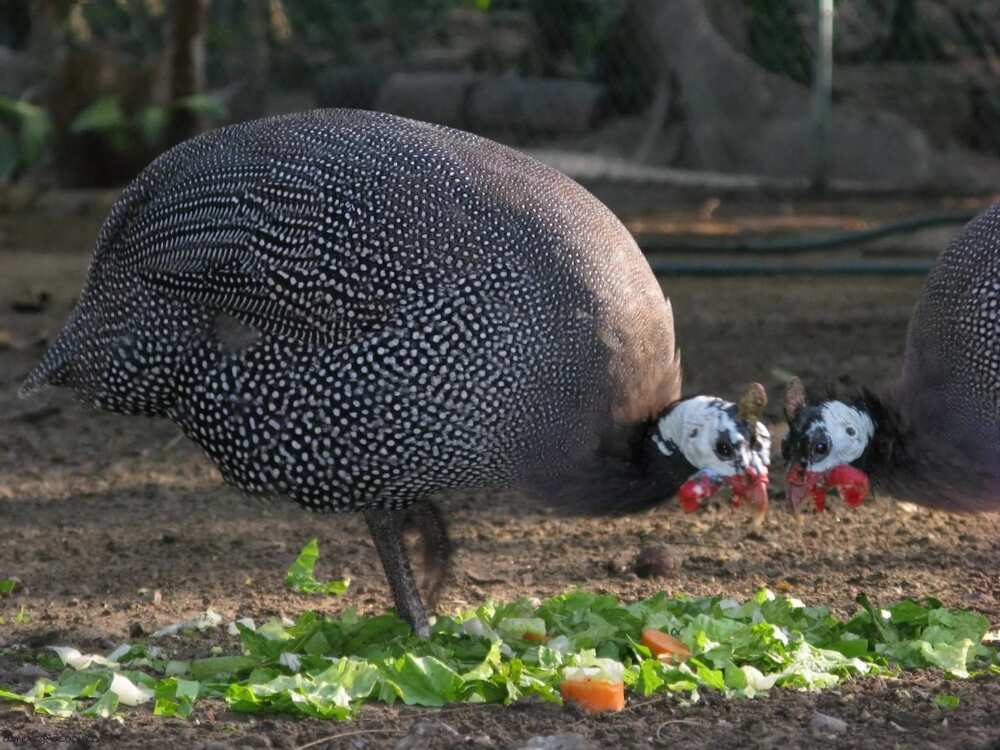
Taking care of guinea fowl birds
In general, guinea fowl birds have a bad reputation when it comes to taking care of their keets, and that is why you may have to do some work in order to take care of them and protect them. Statistics have proven that keet mortality control is the biggest issue that faces the farmers in this business, and you should be well prepared for that so that you won’t lose a big amount of keets. The hens may sometimes abandon their nets even after spending a few nights on their eggs. That is why it is very recommended to watch the hens after they lay their eggs.
If you notice that the eggs are abandoned by the hens, then make sure to move them to an incubator right away as soon as possible. You can follow the instructions of incubating turkey or pheasant eggs if you cannot find specific instructions for incubating guinea fowl eggs, and in any case, the incubating period for guinea fowl eggs is usually between 26 and 28 days. Once the keets have hatched, you need to do your best to take care of them until they are strong enough to take care of themselves. A broody hen could be very useful sometimes for hatching the eggs and raising the keets.
Source: YEN.com.gh




